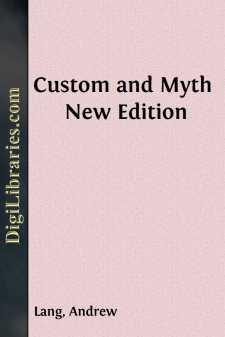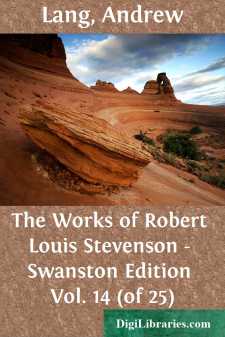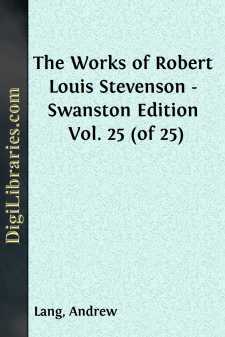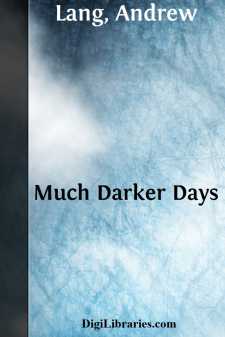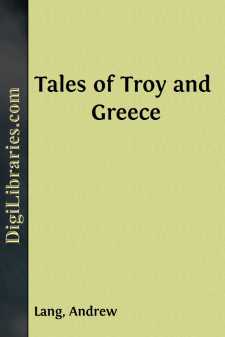Categories
- Antiques & Collectibles 13
- Architecture 36
- Art 48
- Bibles 22
- Biography & Autobiography 813
- Body, Mind & Spirit 142
- Business & Economics 28
- Children's Books 17
- Children's Fiction 14
- Computers 4
- Cooking 94
- Crafts & Hobbies 4
- Drama 346
- Education 46
- Family & Relationships 57
- Fiction 11829
- Games 19
- Gardening 17
- Health & Fitness 34
- History 1377
- House & Home 1
- Humor 147
- Juvenile Fiction 1873
- Juvenile Nonfiction 202
- Language Arts & Disciplines 88
- Law 16
- Literary Collections 686
- Literary Criticism 179
- Mathematics 13
- Medical 41
- Music 40
- Nature 179
- Non-Classifiable 1768
- Performing Arts 7
- Periodicals 1453
- Philosophy 64
- Photography 2
- Poetry 896
- Political Science 203
- Psychology 42
- Reference 154
- Religion 513
- Science 126
- Self-Help 84
- Social Science 81
- Sports & Recreation 34
- Study Aids 3
- Technology & Engineering 59
- Transportation 23
- Travel 463
- True Crime 29
Andrew Lang
Andrew Lang (1844-1912) was a Scottish poet, novelist, and literary critic, best known for his collections of fairy tales, notably the "Fairy Books" series, which includes titles like "The Blue Fairy Book" and "The Red Fairy Book." He was also a prolific scholar, contributing to the fields of anthropology, history, and folklore with works such as "Custom and Myth" and "Myth, Ritual, and Religion." Lang's work in popularizing folk and fairy tales has had a lasting influence on children's literature and the study of mythology.
Author's Books:
Sort by:
by:
Andrew Lang
JOHN AMEND-ALL On a certain afternoon, in the late spring-time, the bell upon Tunstall Moat House was heard ringing at an unaccustomed hour. Far and near, in the forest and in the fields along the river, people began to desert their labours and hurry towards the sound; and in Tunstall hamlet a group of poor country-folk stood wondering at the summons. Tunstall hamlet at that period, in the reign of old...
more...
by:
Andrew Lang
PREFACE. Since the first publication of Custom and Myth, many other works have appeared, dealing on the same principles with matters of belief, fable and ritual. Were the book to be re-written, numerous fresh pieces of evidence might be adduced in support of its conclusions. In Mr. Frazer’s Golden Bough (Macmillan) the student will find a carefully conceived argument, and a large collection of...
more...
by:
Andrew Lang
I. To W. M. Thackeray. Sir,—There are many things that stand in the way of the critic when he has a mind to praise the living. He may dread the charge of writing rather to vex a rival than to exalt the subject of his applause. He shuns the appearance of seeking the favour of the famous, and would not willingly be regarded as one of the many parasites who now advertise each movement and action of...
more...
by:
Andrew Lang
PREFACE The Editor takes this opportunity to repeat what he has often said before, that he is not the author of the stories in the Fairy Books; that he did not invent them 'out of his own head.' He is accustomed to being asked, by ladies, 'Have you written anything else except the Fairy Books?' He is then obliged to explain that he has NOT written the Fairy Books, but, save these,...
more...
by:
Andrew Lang
BED IN SUMMER In winter I get up at night And dress by yellow candle-light. In summer, quite the other way,— I have to go to bed by day. I have to go to bed and see The birds still hopping on the tree, Or hear the grown-up people’s feet Still going past me in the street. And does it not seem hard to you, When all the sky is clear and blue, And I should like so much to play, To have to go to bed by...
more...
by:
Andrew Lang
Returning from Sydney at the end of October 1890, Stevenson and his wife at once took up their abode in the wooden four-roomed cottage, or “rough barrack,” as he calls it, which had been built for them in the clearing at Vailima during the months of their absence at Sydney and on their cruise in the Equator. Mr. Lloyd Osbourne in the meantime had started for England to wind up the family affairs at...
more...
by:
Andrew Lang
CHAPTER I.—The Curse (Registered). WHEN this story of my life, or of such parts of it as are not deemed wholly unfit for publication, is read (and, no doubt, a public which devoured 'Scrawled Black' will stand almost anything), it will be found that I have sometimes acted without prim cautiousness—that I have, in fact, wallowed in crime. Stillicide and Mayhem I (rare old crimes!) are...
more...
by:
Andrew Lang
THE BOYHOOD AND PARENTS OF ULYSSES Long ago, in a little island called Ithaca, on the west coast of Greece, there lived a king named Laertes. His kingdom was small and mountainous. People used to say that Ithaca 'lay like a shield upon the sea,' which sounds as if it were a flat country. But in those times shields were very large, and rose at the middle into two peaks with a hollow between...
more...
by:
Andrew Lang
I. THE GREAT IDEA The scene was a dusky shabby little room in Ryder Street. To such caves many repair whose days are passed, and whose food is consumed, in the clubs of the adjacent thoroughfare of cooperative palaces, Pall Mall. The furniture was battered and dingy; the sofa on which Logan sprawled had a certain historic interest: it was covered with cloth of horsehair, now seldom found by the...
more...
by:
Andrew Lang
CHAPTER I. SCOTLAND AND THE ROMANS. If we could see in a magic mirror the country now called Scotland as it was when the Romans under Agricola (81 A.D.) crossed the Border, we should recognise little but the familiar hills and mountains. The rivers, in the plains, overflowed their present banks; dense forests of oak and pine, haunted by great red deer, elks, and boars, covered land that has long...
more...



